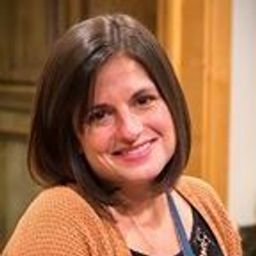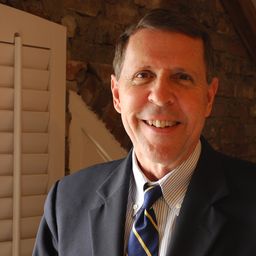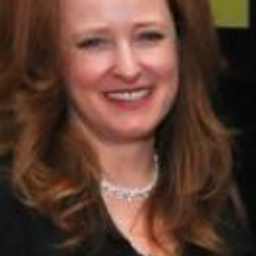
Ms. Erin Linn
Erin is the Founder and Director of the Integrated Heritage Project, a nonprofit ngo that seeks to preserve, protect, and promote endangered heritage sites in developing economies while strengthening local communities. A trained archaeologist and heritage professional, Erin has extensive experience working on commercial and academic archaeological and heritage management projects in seven countries. In 2015 She has worked for the Museum of London Archaeology, Heritage Watch International in Cambodia, the Earthwatch Institute, and the Centre for Heritage & Society at the University of Massachusetts, Amherst.
As the Project Development Officer for Heritage Watch in Cambodia, Erin oversaw the creation and implementation of a heritage protection and education program at the site of Banteay Chhmar, and contributed to the development of a national heritage protection campaign in collaboration with the Cambodian government and UNESCO.
Erin holds an MA in Archaeology from the Institute of Archaeology, University College London and an MA in Cultural Heritage from Deakin University, Australia. Erin is currently employed as the Communications Officer for the Center for African Studies at Harvard University.
Elementy, w których Ms. Erin Linn attends
piątek 3 czerwiec, 2016
What does heritage change for tourism? | Le patrimoine, ça change quoi au tourisme? Ce débat veut interroger les relations entre le tourisme et le patrimoine et dépasser ainsi les idées reçues sur l'antagonisme entre le tourisme "corrupteur" et le patrimoine qui en serait la victime. Il s'agit donc de repenser le tourisme comme un réel acteur du patrimoine, de sa valorisation et de son appropriation, y compris par les populations locales. Cela présuppose, au p...
This forum will explore the current directions of critical heritage studies and what makes ACHS distinctive. Panel members will discuss what the term critical means to them, and what directions they would like to see develop in the future. To help develop an open dialogue, the session will also give considerable time to contributions from the audience.
Welcome addresses and cocktail, followed by the Concordia Signature Event "The Garden of the Grey Nuns". As the opening ceremony and cocktail take place in the former Grey Nuns' Motherhouse, recycled into campus residence and reading rooms by Concordia University, delegates will also have the possibility to discover the video Three Grey Nuns (3 minutes, by Ron Rudin and Phil Lichti. Three Grey Nuns recount their memories of communal life in the Grey Nun’s Motherhouse. Built...
sobota 4 czerwiec, 2016
What if we changed our views on heritage? And if heritage has already changed? While, on the global scene, states maintain their leading role in the mobilization of social and territorial histories, on the local scale, regions, neighbourhoods and parishes have changed. Citizens and communities too: they latch on to heritage to express an unprecedented range of belongings that no law seems to be able to take measures to contain, often to the discontent of...
This festive event will offer delegates a taste of one of the iconic dishes of Montreal, the smoked meat sandwich, imported by Jewish immigration from Eastern Europe in the early 20th century. In particular, the tasting will allow a discovery of the products of the renowned international institution Schwartz's, the Hebrew Delicatessen for which Montrealers and tourists alike are willing to wait in long line-ups. During the tasting, “Chez Schwartz,” a documentary produced by Garry B...
niedziela 5 czerwiec, 2016
"What does heritage change?" is a multifaceted question to which the answer(s) are in primary respects related to real-life negotiations among different groups of citizens, cultures, races, ethnic groups, sexual identities, and social classes about received, official and/or widely accepted or accomodated intangible attributes, cultural traditions, historic monuments, buildings, and other transmitted or revived historical legacies. Heritage designated by and for whom, for what motivations, an...
poniedziałek 6 czerwiec, 2016
Questions about the repatriation of cultural property, issues of access and exclusion in the World Heritage system, intangible heritage practices in conflict with human rights norms, or the ways in which the international human rights regime is interpreted as a form of cultural heritage itself: rights are now considered relevant in a broad variety of heritage situations. This is reflected in the incorporation of references to human rights in a series of key international heritage-relate...
This session will address the potential and limitations of heritage as a tool for leverage, empowerment and dissent in Africa. It is widely acknowledged that heritage—the selective valuation and use of the past in the present—can be an oppressive. Heritage work in Africa has even been characterized as "an instrument for dictatorship" (Peterson et al. 2015:28) because it is often implicated in upholding particular narratives and political orders, imposing a singular vision onto a heterog...
This session seeks to explore the role of urban heritage in mediating and contesting political conflict in the context of divided cities. We take urban heritage in a broad sense to include places left, scarred or transformed by geo-political dispute, national and ethnic division, violence and war. The case studies can include tangible spaces such as elements of border architecture, historic sites, ruins and urban traces of the conflict, and memorials; as well as intangible elements of city, i...
As recent publications have demonstrated, the role of the expert in heritage conservation is a relevant, indeed imperative topic of discussion. On the one hand, the knowledge required to work in the field has evolved over time in response to changes in the definition of heritage. Once the exclusive domain of architects and historians, the expertise needed today draws on a broader scope of disciplines including urban planning, landscape studies, anthropology, economics and climatology, often m...









